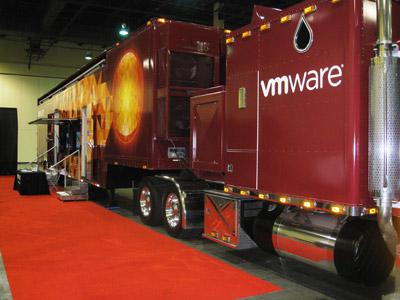VMware Shareholder Says Reverse Merger With Dell Will Undercut VMware's Growth Strategy

One of VMware's largest independent shareholders, Jericho Capital, sent off a sharply worded protest Monday against a reverse merger with Dell, arguing that plan would undermine VMware's successful growth strategy to service Dell's massive debt.
Jericho Capital said the Dell merger, an option widely discussed of late, would saddle VMware with debt to only the benefit of Dell, its majority shareholder. And there would be nothing to show for improving synergies.
The technology-oriented investor out of New York has no doubt the plan would "destroy shareholder value" and "significantly damage" VMWare, wrote Josh Resnick, managing member of the firm that owns 1.8 percent of the virtualization leader.
[Related: Partners Anxiously Anticipating Decision On Dell VMware Reverse Merger]
"Even the most casual observer can see that [VMware] gains nothing by saddling the Company’s faster growth, net cash, highly strategic software business with the dead weight of Dell’s slower growth, heavily debt-laden, legacy hardware-dependent entity," Resnick said.
Jericho felt strongly enough about the need to rally independent investors against the proposal that it went against its practice of not commenting on corporate plans.
The potential for a reverse merger has been a hot topic, with recent reports that it is an option being strongly considered by Michael Dell and the team advising Dell Technologies. A decision probably won't come until April, according to a recent CNBC report.
Dell currently owns roughly 82 percent of VMware through the EMC acquisition.
The reverse merger plan amounts to a bailout of Dell, which took on enormous debt to acquire EMC in 2016, at the expense of VMware's other investors, according to Jericho.
The plan would harm VMware just as its software-defined data center strategy is resonating with investors.
VMware's strategy, as Jericho sees it, involves attacking the market on three fronts: software-defined data center, hybrid cloud and end-user computing.
Ambitions for software solutions addressing those markets will not benefit from "Dell's legacy, hardware-focused" business, Resnick said.
Jericho said if VMware wants to pursue a significant acquisition, several other companies would be a good fit in serving its broader strategy. It named Red Hat, Palo Alto Networks, Splunk, Tanium, and Rubrik.
In making its argument against the merger, the investor cited VMware CEO Pat Gelsinger, who said at the recent VMworld conference that his company doesn't have any holes in its portfolio that need to be filled.
Synergies between VMware and Dell have already been realized in a coordinated go-to-market effort through the current relationship with Dell as a parent company, according to Jericho.
VMware "is highly strategic for its customer base," Resnick said.
"In contrast, Dell remains business-unit focused. A reverse merger would dilute VMW's rising mindshare and importance among the C-level suite of its customer base."
Bob Venero, CEO of Holbrook, N.Y.-based solution provider Future Tech, a Dell EMC Titanium partner, said sees the complaints from Jericho Capital as "rhetoric from a minimal stakeholder."
Venero, in fact, sees a Dell VMware reverse merger as a potential windfall for channel partners. "I hope Dell does not cow-tow to a minimal stakeholder," he said."As history has shown when another organization becomes part of Dell that organization benefits with greater profits and greater scale."
Venero said the reverse merger would create a worldwide leader in software-defined infrastructure. "Today VMware is a nice sized boat but if this deal does go through they will have a fleet of aircraft carriers to drive their growth going forward," he said.
"When you peel this deal back what you are going to have is thousands and thousands of salespeople driving the VMware software stack into existing accounts," Venero said. "Anyone making a statement that such a deal is short-sighted is not a visionary. (Dell founder and CEO) Michael Dell is a visionary. That is why he is so successful."
Steve Burke contributed to this report.